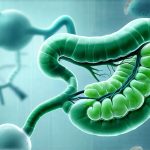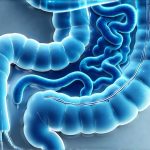Gas is a completely normal part of digestion. It’s produced when bacteria in the large intestine ferment undigested carbohydrates. While some gas is expected, excessive or uncomfortable gas can be distressing and impact quality of life. Many factors contribute to increased gas production, including diet, eating habits, stress levels, and underlying digestive issues. Understanding how our bodies process food, and where things might go wrong in that process, is the first step towards managing this common issue.
The digestive system relies on a complex interplay of mechanical and chemical processes to break down food into absorbable nutrients. Enzymes are essential catalysts for these chemical reactions. When enzyme production is insufficient or certain foods aren’t properly broken down, it can lead to increased fermentation in the gut, and consequently, more gas. This article will explore the role digestive enzymes play in reducing gas and how they fit into a holistic approach to digestive comfort.
Understanding Digestive Enzymes
Digestive enzymes are proteins that speed up chemical reactions in the body – specifically, breaking down food molecules into smaller units that can be absorbed. Different enzymes target different macronutrients: amylases break down carbohydrates, proteases break down proteins, and lipases break down fats. The pancreas is a major producer of these enzymes, but some enzyme activity also occurs in the mouth (amylase) and stomach (pepsin). A deficiency or imbalance in these enzymes can disrupt digestion and lead to symptoms like bloating, gas, and discomfort.
Sources of Digestive Enzymes
Digestive enzymes are naturally present in many foods, including pineapple, papaya, mangoes, honey, and fermented products. However, the amount found in food may not always be sufficient for optimal digestion, especially if someone has difficulty digesting certain foods or experiences enzyme deficiencies. Supplementation is a common option, with enzymes derived from plant or microbial sources available in various forms – capsules, tablets, and liquids. It’s important to remember that supplements are not regulated the same way as medications, so quality can vary between brands.
Enzyme Specificity & Carbohydrates
Many people experience gas after eating carbohydrate-rich foods like beans, broccoli, or wheat. This is often due to a lack of alpha-galactosidase (to break down complex sugars in beans), lactase (to digest lactose in dairy), or amylase (for starches). Undigested carbohydrates reach the large intestine where bacteria ferment them, producing gas as a byproduct. Enzyme supplementation targeting these specific carbs can significantly reduce fermentation and subsequent bloating. For example, taking lactase before consuming dairy products can help individuals with lactose intolerance better tolerate milk and other dairy items.
Enzymes & Protein Digestion
Incomplete protein digestion can also contribute to gas. Proteases break down proteins into amino acids for absorption. If protease activity is low, undigested protein reaches the colon where bacteria break it down, resulting in putrefaction and gas production – often with unpleasant odors. Supplementing with a broad-spectrum protease blend may help improve protein digestion, particularly for those who struggle with this process or consume large amounts of protein. Factors like stomach acid levels can also impact protease function; low stomach acid can hinder enzyme activity.
Lipase & Fat Malabsorption
While less commonly associated directly with gas, fat malabsorption due to insufficient lipase can lead to digestive upset, including bloating and changes in bowel habits which sometimes are perceived as gas-related discomfort. Lipase breaks down fats into fatty acids and glycerol. If the body doesn’t produce enough lipase or if pancreatic function is compromised, dietary fats aren’t properly digested. This can result in steatorrhea (fatty stools) and altered gut microbiome activity that may indirectly contribute to digestive symptoms.
Ultimately, addressing gas requires a multifaceted approach. Digestive enzymes are one tool among many. Identifying individual food sensitivities, practicing mindful eating habits (chewing thoroughly, eating slowly), managing stress levels, and staying hydrated all play crucial roles in optimizing digestion and minimizing gas production. It’s important to consult with a healthcare professional or registered dietitian for personalized guidance and to rule out any underlying medical conditions that might be contributing to digestive discomfort. They can help determine if enzyme supplementation is appropriate and which enzymes would be most beneficial based on your specific needs and dietary habits.


















